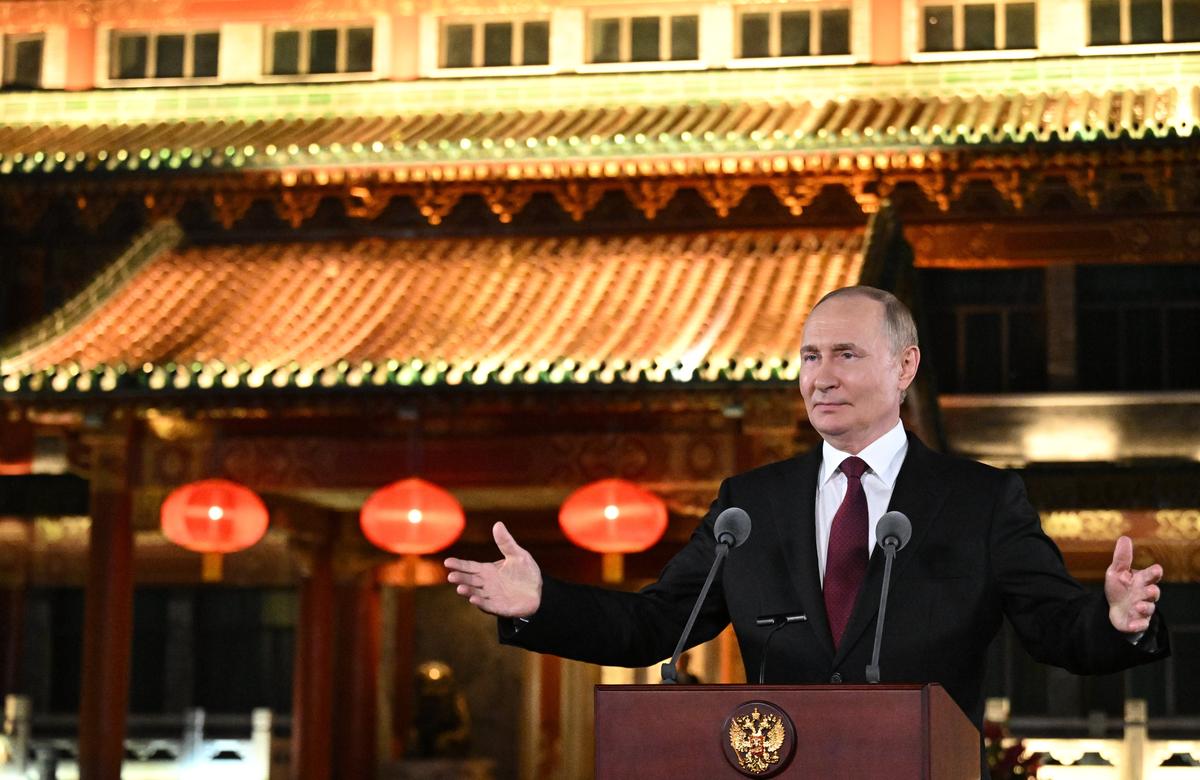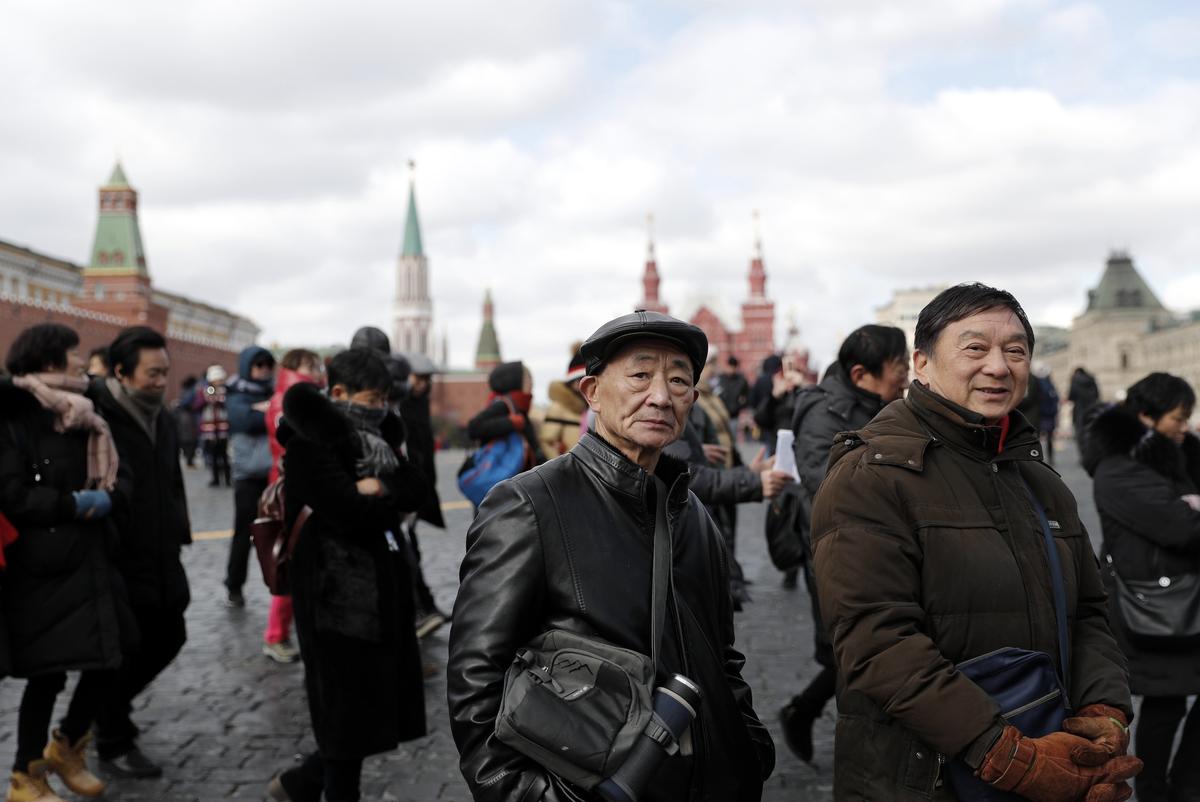


On the eve of China’s 80th Victory Day military parade earlier this month, the Chinese Foreign Ministry announced that it was lifting visa requirements for Russian citizens arriving in the country for short stays. Following this unexpected move, Vladimir Putin personally thanked Chinese President Xi Jinping for what he referred to as a “friendly act” on Beijing’s part and pledged that Moscow would respond in kind.
This clear attempt to extend the warm camaraderie exhibited by the two heads of state to their respective populations appears to have enjoyed some success, with twice as many flights as usual being booked from Russia to mainland China in the 24 hours following the announcement, as well as a 7% jump in Chinese hotel reservations and an explosion of China-related search queries on Russian search engine Yandex.
With much of the West largely inaccessible to them since 2022, many Russian holidaymakers now treasure the relative freedom of movement they enjoy in significant swaths of the Global South far more than they did before the invasion of Ukraine.
The European Union has prohibited Russian airlines from using its airspace since 2022, while the consular fees Russians pay for Schengen visas have more than doubled in that time, not to mention the additional paperwork demanded for each application. Moreover, Brussels is once again mulling a blanket ban on Russians travelling to Europe on tourist visas.
Thanks to intense lobbying efforts from high-profile opposition figures such as Yulia Navalnaya and Vladimir Kara-Murza, the European Parliament decided against going down this path in its latest sanctions package, though that is not to say the nuclear option of blacklisting all Russian tourists is completely off the table.
At the same time, travel to the United States is just as cumbersome for the average Russian. Aside from direct routes being scrapped, the downgraded US diplomatic presence in Russia means that Russians are forced to apply for visas through US embassies in Kazakhstan or Poland — a country Russians are barred from for non-humanitarian purposes.
China has arguably been overplaying the visa-free card since the end of 2023, both in order to boost flagging international arrivals and as a soft power tool.
With this in mind, Beijing has dismantled the excessive red tape once synonymous with visiting the Middle Kingdom. China has arguably been overplaying the visa-free card since the end of 2023, both in order to boost flagging international arrivals and as a soft power tool. Russia had nonetheless remained an afterthought in China’s post-pandemic tourism push until this year’s Shanghai Cooperation Organisation (SCO) Summit in Tianjin.
Long before it lifted visa requirements for Russian citizens, China had extended the same privilege to the bulk of EU member states, most of the Gulf states, six former Soviet republics and even to countries that it technically considers to be its adversaries, including Japan and Australia.
One possible explanation for Beijing’s decision not to include streamlined entry requirements for Russian tourists into its February 2022 “no limits” partnership with Moscow is prior Chinese knowledge of Moscow’s intention to invade Ukraine.

Vladimir Putin during a press conference following a military parade to mark the 80th anniversary of the end of World War II, in Beijing, China, 3 September 2025. Photo: EPA / SERGEY BOBYLEV / SPUTNIK / KREMLIN POOL
Had China already introduced visa-free entry for Russians at the time, its cities on the Russian border would have likely borne the brunt of the wave of Russian men fleeing mobilisation in September 2022, as well as future enlistment crackdowns, not least as fighting-age men from Russia’s Far East region continue to be disproportionately press-ganged into military service and sent off to the frontlines against their will.
Of greater concern to Beijing than harbouring draft-dodgers on an indefinite basis would have been the prospect of furloughed PTSD-stricken off-duty soldiers, crypto scammers and intelligence operatives it risks attracting in the absence of rigorous background checks on those entering the country.
If anything, the regret currently being felt in popular Asian hotspots such as Bali and Phuket over rolling out the red carpet for war-weary Russians who are often found disturbing public order and indulging in criminality does serve as a cautionary tale.
That said, China has its reasons for refusing to heed this wake-up call and for intensifying cross-cultural engagement with Russia regardless. Serious doubts remain as to whether China’s relaxed visa regime is bearing fruit in terms of reciprocity, obsequious testimonials from first-time Western travellers notwithstanding.
Not a single OECD jurisdiction has facilitated inbound travel for rank and file Chinese nationals. Even the South Korean government, which recently abolished visa requirements for accredited Chinese tour groups, has been petitioned by more than 52,000 inhabitants to reverse course.
The Kremlin, by contrast, is doubling down on its courtship of Chinese tourists — 1.2 million of whom visited Russia last year alone, a four-fold increase compared to 2023, which accounted for almost half of Russia’s 228,000 foreign visitors in the first quarter of 2025.

Chinese tourists on Moscow’s Red Square. Photo: EPA / MAXIM SHIPENKOV
Given the pace and scale at which wartime Russia’s hospitality landscape is being geared toward a Sino-centric clientele, a natural next step would be the eradication of any outstanding mobility or social constraints faced by Chinese guests, including the €50 e-visa they are required to obtain and the acute shortage of Mandarin-speaking tour guides in Russia.
However, by growing exceedingly reliant on this particular market to keep its embattled tourism industry viable, Russia, already the junior partner in its lopsided relationship with China, is condemning itself to deeper vassalage with no substantial financial gain to speak of.
China and Russia are out to replace the grandiose Lisbon to Vladivostok project envisioned during the pre-2014 heyday of Russian-EU ties with an alternative Moscow to Macau trade and travel zone. Indeed, the SCO — the Chinese-led intergovernmental bloc composed of 26 predominantly Central Asian, South Asian and Middle Eastern States — could eventually emerge as the region’s answer to Europe’s Schengen Area.
China and Russia’s newly liberalised visa regimes are therefore intended to pave the way for a new world order in which members of the so-called “global majority” are increasingly content to travel among themselves rather than instinctively heading to the West for business, pleasure or otherwise.
Saahil Menon is a freelance journalist based in Dubai. Views expressed in opinion pieces do not necessarily reflect the position of Novaya Gazeta Europe.
The Russian government has banned independent media. We were forced to leave our country in order to keep doing our job, telling our readers about what is going on Russia, Ukraine and Europe.
We will continue fighting against warfare and dictatorship. We believe that freedom of speech is the most efficient antidote against tyranny. Support us financially to help us fight for peace and freedom.
By clicking the Support button, you agree to the processing of your personal data.
To cancel a regular donation, please write to [email protected]
VPNovaya
Help Russians and Belarusians Access the Truth

